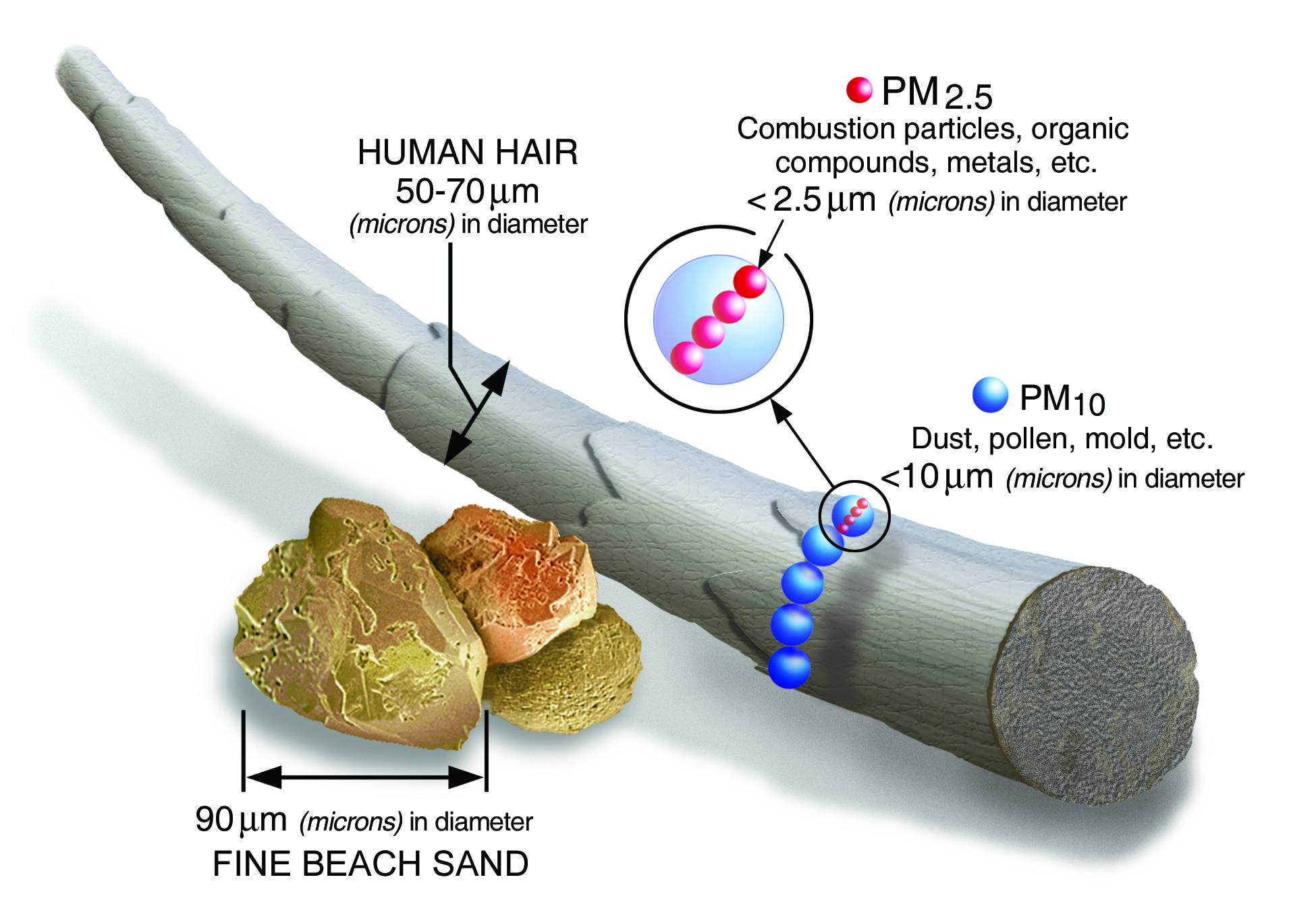Air quality and wildfire smoke
Indoor air quality
Healthy indoor spaces are key to reducing the spread of airborne diseases, including colds, flus and COVID‑19.
Learn specific steps you can take to improve the air quality in your center or home-based program by watching a video on Indoor air quality safe practices including training modules in multiple languages that covers the following:
- Identify different ventilation and filtration methods
- List and describe specific actions to improve indoor air quality
- Determine at least one or multiple action(s) you can take at your program
Outdoor air quality
Particulate matter (PM) (also called particle pollution) contains microscopic solids or liquid droplets that are found in the air.
PM2.5: Fine particles less than 2.5 micrometers in diameter. These are things like wildfire smoke, and industrial and vehicle pollution. These particles are so small that after being inhaled into the lungs, they can get into the bloodstream, posing the greatest risk to health.
PM10: Fine particles less than 10 micrometers in diameter. These are things like dust, dirt, pollen, and mold. These can get inhaled deep into the lungs and cause serious health problems.

Size comparisons for Particulate Matter particles, EPA
You can use air quality alerts to protect yourself and others when PM reaches harmful levels:
- Outdoor air quality is measured using a color scale called the Air Quality Index (AQI) When the air quality in our region is in the orange (unhealthy for sensitive groups and children) to purple (very unhealthy) range, your program should keep children and staff indoors. For certain children with health conditions, they should even stay inside when the level is moderate (yellow).
- The Washington Air Quality Guide for School & Child Care Activities (PDF) provides recommendations to protect children and youth during school activities and can be applied to child care, before/after school programs, camps, and sports programs for children and youth (18 years and younger) by considering the duration and intensity of outdoor activities.
Wildfire smoke
The summer can bring wildfire smoke to our area. When there are wildfires, before spending time outdoors, check the local air quality to see if outdoor activities are appropriate. It is important to check often since conditions can change rapidly throughout the day.
When the smoke levels are high outside:
Use the Washington Air Quality Guide for School & Child Care Activities (PDF). Adjust activity level and time spent outside, as needed.
- Keep windows closed as much as possible.
- Set HVAC/Ventilation systems to recirculate air rather than bring in outside air.
- Consider using portable HEPA air cleaners that provide 99% or higher filtration to reduce fine particles from wildfire smoke.
- Staff should consider using N95 masks (83 KB) when spending time outside.
- For a low-cost option, make your own portable air cleaner using a box fan with a MERV 13 furnace filter attached to the back. This video shows how to make one:
Starting the summer of 2024, during high-risk wildfire weather conditions, three major power companies in Washington, including Puget Sound Energy (PGE), will adopt “Public Safety Power Shutoff” (PSPS) to help prevent wildfires from starting. These planned power outages have the potential to impact businesses, including child care and early learning programs. To help prepare, review these power outage preparedness recommendations and PGE's information on Public Safety Power Shutoffs.
There are many WAC requirements around safety that may be relevant if there is a power outage. Consider ahead of time how your program would:
- Maintain the indoor temperature within the required range (between 68 and 82°Fahrenheit).
- Keep the classrooms lit well enough to observe sleeping infants and provide appropriate supervision of activities.
- Use a generator safely in an emergency.
- Heat food and keep refrigerated foods within the required temperature range.
No Smoking, No Vaping posters
- No Smoking, No Vaping
- አቅራቢያ ማጨስ ወይም ማንኛውንም ጭስ መሳብ የተከለከለ ነው (አማርኛ / Amharic)
- 不抽烟,不抽电子烟 (简体中文 / Chinese, Simplified)
- 不抽煙,不電子抽煙 (繁體中文 / Chinese, Traditional)
- No Sumar No Vaping (Español / Spanish)
- Sigaar ha ku cabin.hana isticmaalin birta sigaarka lagu dhuuqo/jiido (Af Soomaali / Somali)
- Không được hút thuốc lá, Không được Vape (tức là hút thuốc bằng ống điếu hơi) (Tiếng Việt/ Vietnamese)
 Translate
Translate